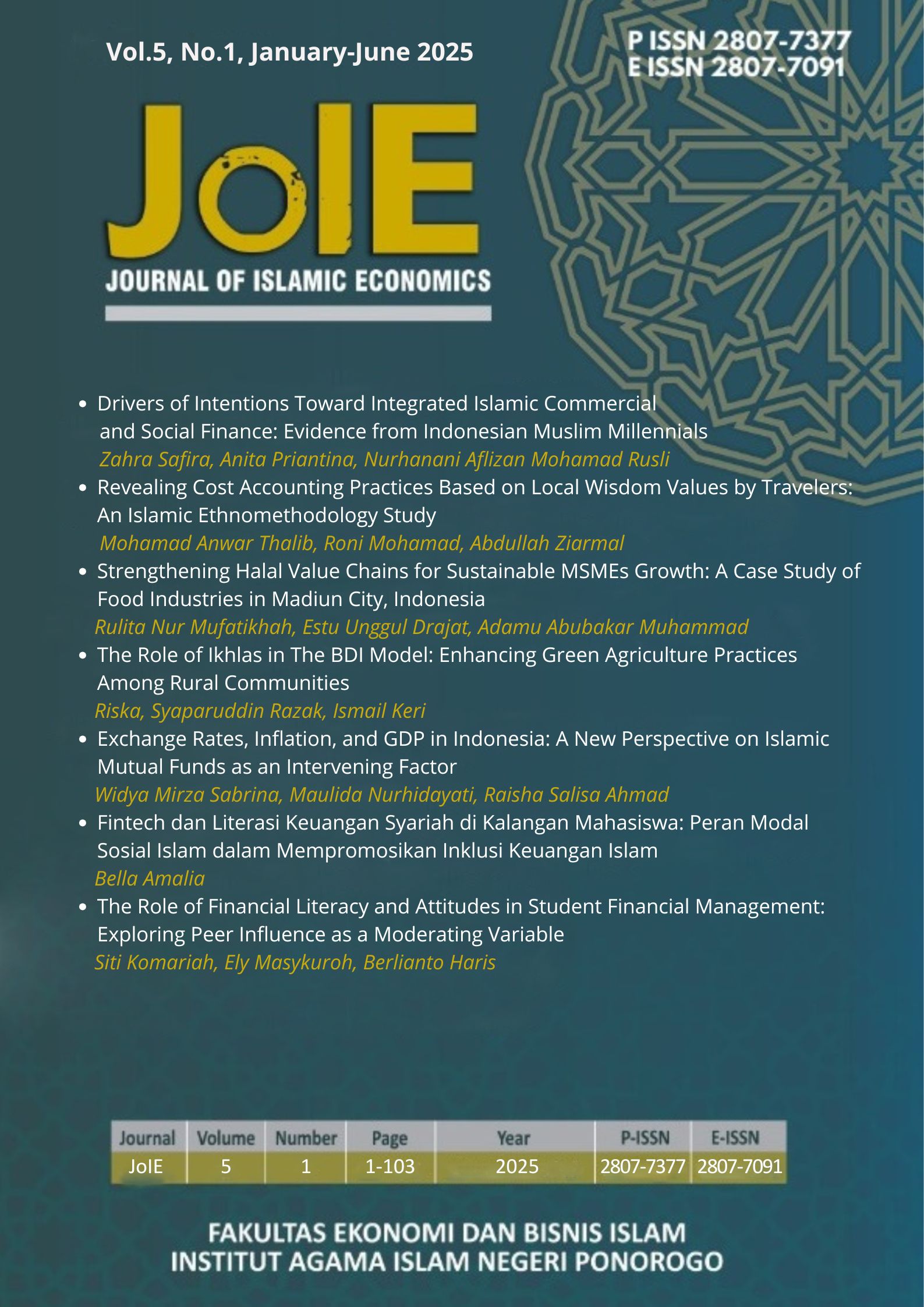The Role of Ikhlas in The BDI Model: Enhancing Green Agriculture Practices Among Rural Communities
DOI:
https://doi.org/10.21154/joie.v5i1.10515Keywords:
Green agriculture, BDI model, rural communities, sustainable agricultural policiesAbstract
Introduction: This study aims to examine the importance of ikhlas (sincerity) in the BDI (Belief, Desire, Intention) decision-making model for green agriculture development among rural people in Palakka District. Green agricultural techniques, including the use of organic practices, water-saving management, and biodiversity conservation, are significant in maintaining environmental health. Research Methods: An integrative approach with quantitative methods combined with an Islamic economic perspective was used in this study. Data were collected through a questionnaire survey completed by 152 respondents from rural communities with experience or potential in green agriculture. The data were then analyzed using Structural Equation Modeling (SEM) techniques. Results: The results show that ikhlas, desire, and belief significantly influence intention and decision to implement green agriculture, with intention acting as a mediator of this relationship. Conclusion: In conclusion, the study indicates that the addition of the value of ikhlas alongside belief and desire can increase the intention and decision of rural communities to implement green agriculture. The inference in practice is that policies that incorporate spiritual values within green agricultural development can encourage active community participation. Findings contribute to the formulation of policies for sustainable agriculture, with a focus on prioritizing spiritual values toward sustainable environment.
Downloads
Published
Issue
Section
License
Copyright (c) 2025 Riska, Syaparuddin Razak, Ismail Keri

This work is licensed under a Creative Commons Attribution 4.0 International License.
JoIE: Journal of Islamic Economics allows the author(s) to hold the copyright without restrictions and allow the author(s) to retain publishing rights without restrictions, also the owner of the commercial rights to the article is the author.


















